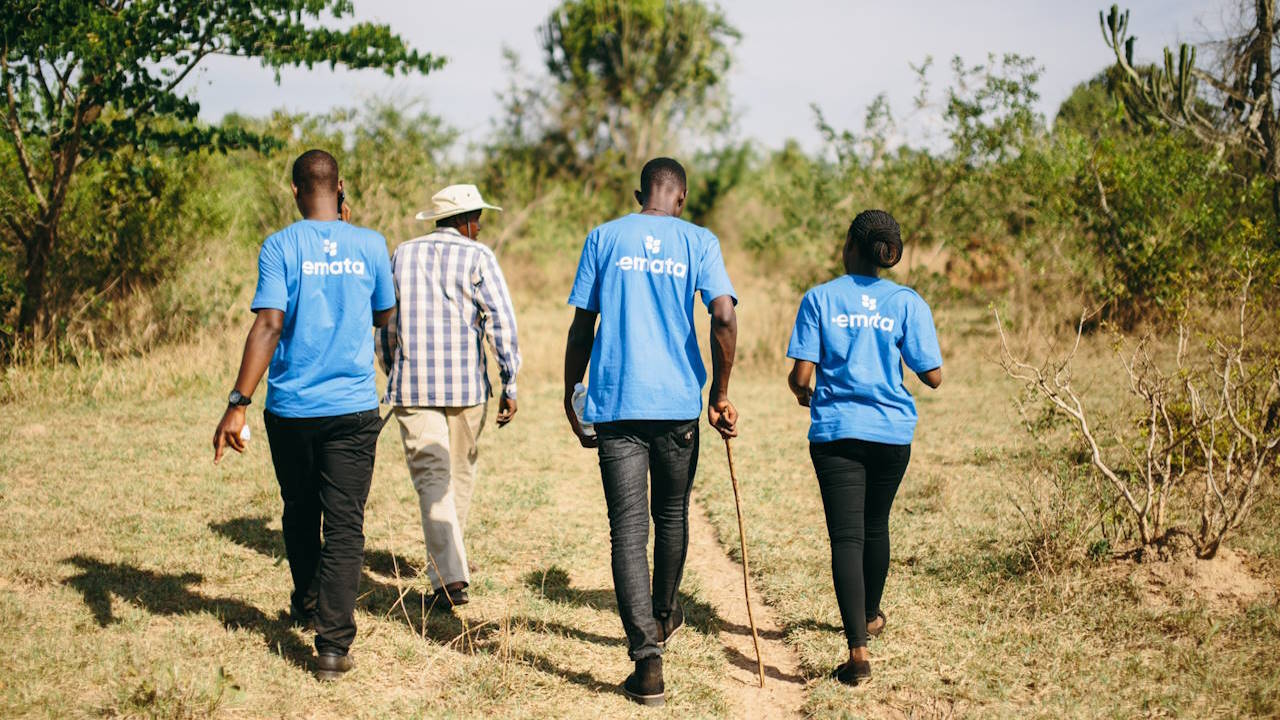
Venture capitalists have provided $2.4mn (Shs8.9bn) in seed financing to Emata, a Ugandan financial technology startup that provides low-cost digital loans to farmers through partnerships with cooperatives and organisations specialising in agricultural support.
Emata uses artificial intelligence and data from its partners to determine creditworthiness, which allows it to tailor loans, minimise defaults (the company claims its default rate is below 5 per cent), and keep the cost of its credit low.
The firm deals with farmers through partnerships with cooperatives. Emata digitises the cooperatives, transitioning them from paper to digital bookkeeping and supply chain management. The cooperatives act as Emata’s loan agents, which eliminates the hurdle of reaching farmers without smartphones. They also collect Emata’s repayments before paying their farmers.
The loans are intended to pay for day-to-day operating expenses. To reduce cash flow pressures on farmers, Emata ties their repayment – made to cooperatives – to harvests.
Emata was launched in 2017 by Bran Willem van den Bosch, currently its chief executive, and Timothy Musoke, and incorporated in 2020. Its technology platform was developed by Laboremus Uganda, the fintech company where both co-founders worked – Mr van den Bosch was the managing director – and which provided the initial capital for Emata’s loan funding.
The seed funding comprises $0.8mn in equity and $1.6mn to expand Emata’s lending.
Before this seed financing, Emata had raised $0.75mn in capital from several sources. This includes a $0.59mn grant from the Dutch Embassy in Uganda, received in March 2022.
Most of Emata’s loans are made to smallholder dairy farmers, a reflection of its early affiliations and the origin of its name – mata means milk in several Ugandan languages. In 2018, the company piloted its first platform, a mobile app, with dairy farmers in western Uganda.
Shortly thereafter, it started working with the Netherlands-based Rabobank through the Agribusiness Development Centre, an agricultural extension and consultancy firm co-founded by Rabobank and Dfcu Bank (then, Rabobank held a 27.54 percent stake in Dfcu, a figure matched by Norway’s Norfund – these were later transferred to a holding company, Arise BV). In 2021, Emata partnered with the Dairy Development Authority, the dairy sector regulator, to introduce its digital solution to dairy cooperatives across Uganda.
Emata’s second-largest client base comprises coffee farmers; it said it will use the new funding to explore expansion into other sectors, with a particular focus on potatoes, soya, cocoa, and barley. Currently, Emata boasts partnerships with 50 agricultural organisations, reaching over 40,000 farmers and disbursing approximately $1mn in loans. It said it grew sevenfold in 2022.
Mr van den Bosch has said, in several interviews, that the fintech grew out of his frustration with agriculture financing in emerging markets. Commercial banks lend too little to agriculture, despite it being the biggest employer in most developing countries, curtailing the sectors’ growth prospects. Agriculture employs 80 per cent of Africa’s adults, contributes 30 per cent to the continent’s GDP, but receives only three per cent of bank lending, he said at a bootcamp in 2021.
When commercial banks in Africa lend to agriculture, it is mostly to connected farmers, not necessarily those who deserve financing, he told Insider.
Agriculture loans made up 11.4 percent of the total commercial bank credit to the private sector in 2022, according to Bank of Uganda data. In July 2023, the most recent month for which data is available, commercial bank loans to agriculture accounted for 10.6 per cent of total outstanding loans. Agriculture processing and marketing, or crop finance, constituted the majority of credit disbursed at 5.7 per cent, while production received 4.9 per cent of total loans.
“Emata dares farmers to dream big and eliminates traditional obstacles that have made agricultural finance unavailable for the vast majority,” Mr van den Bosch said Thursday in a press statement. “Our solution turns a lifelong struggle into a five-minute process, and is already tangibly impacting thousands of East African farmers.”
Investors in the seed financing included African Renaissance Partners, a venture capital firm focused on East Africa; Norrsken Accelerator, a Sweden-based accelerator program for early-stage impact startups; Zephyr Acorn, a fund that provides equity financing and business support to early-stage companies in East Africa; the Draper Richards Kaplan Foundation, an American “venture philanthropy firm supporting early-stage, high-impact social enterprises”; and the Swedish angel investor Marcus Boström.
“We are excited about this partnership with Emata; with agriculture contributing 25 per cent to East Africa’s economy and employing over 70 per cent of the population, improving access to affordable and flexible financial services such as credit facilities is poised to spur economic growth and improve livelihoods,” said Mike Mbari, investment principal at Zephyr Acorn.






